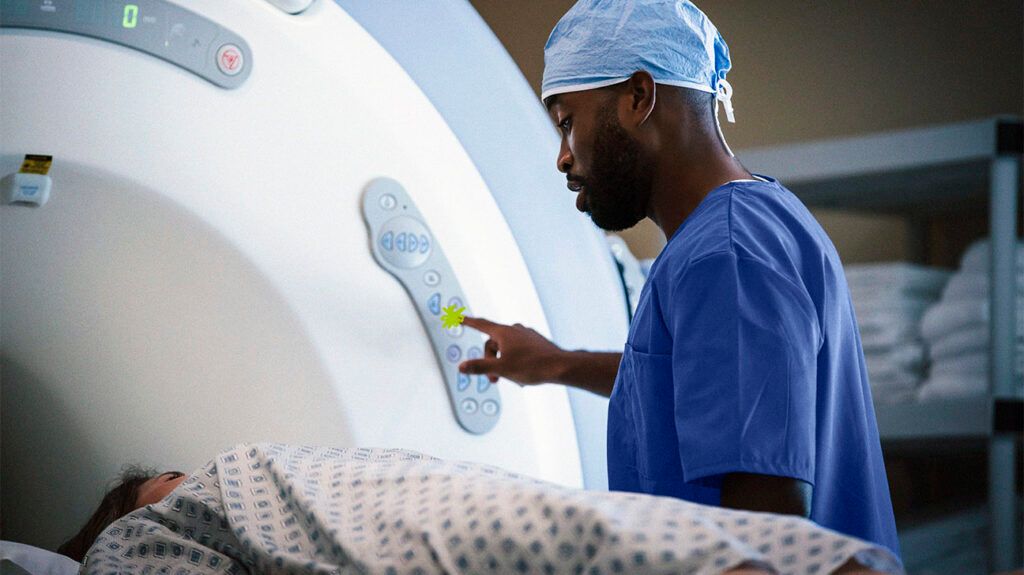Bulbar onset ALS is a type of amyotrophic lateral sclerosis (ALS) that occurs due to the loss of motor neurons in the bulbar region of the brainstem. This progressive condition affects speech, swallowing, and breathing.
ALS is a neurological condition in which motor neurons die. Motor neurons are cells in the central nervous system that control muscle movement.
Bulbar onset ALS primarily affects motor neurons in the bulbar region of the brainstem, which controls the muscles supporting functions such as speech, swallowing, and chewing.
This article examines the symptoms, causes, diagnosis, and treatment of bulbar onset ALS. It also explains the outlook for people with this condition.

Early symptoms of bulbar onset ALS include difficulties with speech and swallowing. Speech impairment may start
Swallowing difficulties may present in the following ways:
- choking or coughing when swallowing food
- a gurgling sound in the voice after swallowing
- spilling foods or liquids from the mouth or nose
- excessive saliva in the mouth
- regurgitation
- shortness of breath while eating
Bulbar onset ALS can also affect speech, leading to:
- difficulty forming words
- slower speech
- a hoarse, quieter, or nasal-sounding voice
- changes in speech patterns, pitch, or rhythm
Once the first bulbar symptoms occur, speech may remain adequate for roughly
In later stages, people experience symptoms that
Bulbar onset ALS usually advances
Limb onset ALS
Limb onset ALS is another type of the condition that affects the limbs first, but eventually progresses to bulbar symptoms. It first presents as weakness in the arms and legs.
ALS may be sporadic or familial.
According to a
- viral infections
- smoking
- heavy metals
- pesticide exposure
Sporadic ALS is slightly
Bulbar onset ALS occurs in 25% of ALS cases and may occur
According to the
- Age: Symptoms most commonly present in people ages 55–75 years, but they can develop at any age.
- Race and ethnicity: ALS is more common in white and non-Hispanic people but can affect all races and ethnicities.
- Occupation: Some research suggests military veterans have a higher risk of developing ALS. The link is unclear but may be due to head injuries or exposure to environmental toxins, such as lead.
To diagnose ALS, doctors may first take a medical history and assess symptoms. The first symptoms in people with bulbar onset ALS affect speech and swallowing, whereas the first symptoms for people with limb or spinal ALS affect the limbs and torso.
A doctor
Other medical tests to diagnose bulbar onset ALS and rule out other conditions include:
- an MRI scan to provide detailed images of the spinal cord and brain
- electromyography (EMG) to assess nerve and muscle function
- a nerve conduction study, which measures how well nerves can send a signal to muscles
- blood and urine tests to help rule out other conditions
- a spinal tap or lumbar puncture to examine cerebrospinal fluid from around the spinal cord and brain
- a muscle biopsy to rule out other conditions
A doctor may refer a person to a specialist to assess swallowing and speech difficulties.
There is currently no cure for ALS. Treatments cannot yet reverse motor neuron damage but
Medications
Treatment for bulbar onset ALS may include:
- Riluzole (Rilutek): This oral medication may help reduce motor neuron damage and increase life expectancy by a few months
- Edaravone (Radicava): People may have this orally or intravenously. It may help slow the loss of functioning.
- Tofersen (Qualsody): This spinal injection may be a treatment option for people with ALS who have a SOD1 gene mutation.
Some people with bulbar onset ALS may currently take sodium phenylbutyrate and taurursodiol (Relyvrio), an oral medication that may slow down loss of functioning and may prolong life in some people with ALS.
However, due to a lack of efficacy in clinical trials, the manufacturer will be withdrawing this medication from the market, and it will not be available in the future.
Other therapies
Other supportive therapies may also help manage bulbar symptoms. These may include:
- physical therapy
- speech therapy
- occupational therapy
- assistive devices
- nutritional support
- feeding tubes
- breathing support
According to a
The presence of bulbar symptoms links to a more rapid deterioration in function, reduced quality of life, and shorter life expectancy.
According to a
As symptoms progress, functions gradually decline, including the ability to speak, eat, and move. Over 2–3 years, bulbar onset ALS may progress and lead to respiratory failure.
People with bulbar onset ALS can speak with a healthcare professional about treatment options that may slow their condition’s progression and improve their quality of life.
Early diagnosis and treatment of ALS are important, as beginning treatments in the early stages of the condition
People should contact a doctor if they have any of the following symptoms:
- breathing difficulties
- swallowing difficulties
- unexplained changes in speech or voice
- weakness in the facial muscles or limbs
These symptoms can occur for many other reasons, but it is important to contact a doctor to learn the underlying cause.
Bulbar onset amyotrophic lateral sclerosis (ALS) is a type of ALS that affects motor neurons in the bulbar region in the brainstem. It affects the muscles involved in speech and swallowing.
Symptoms of bulbar onset ALS can include difficulties with speech, swallowing, and breathing, as well as weakness of facial muscles.
Treatments may help slow the condition’s progression and improve a person’s quality of life. Options include medications, physical and speech therapy, and nutritional support.
